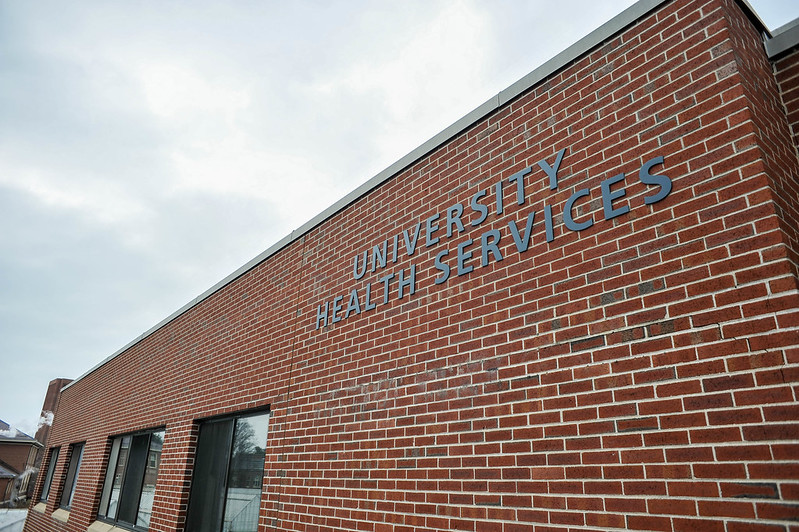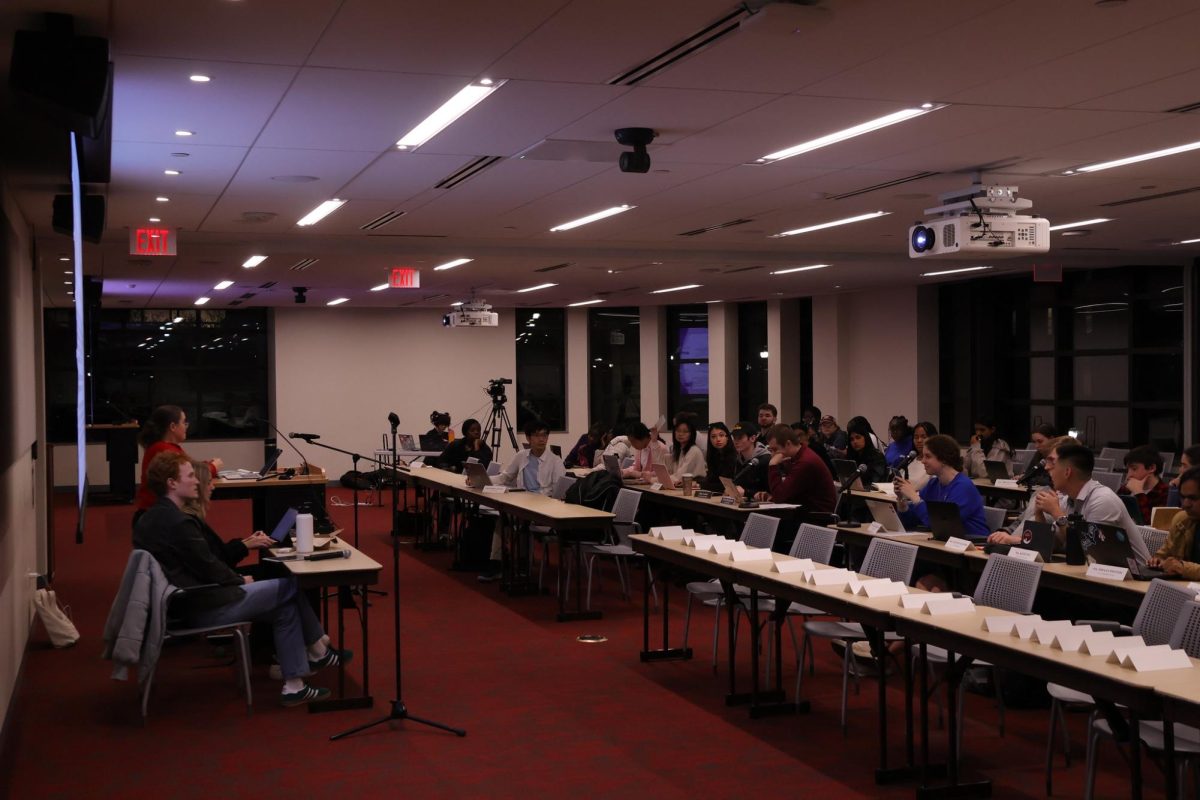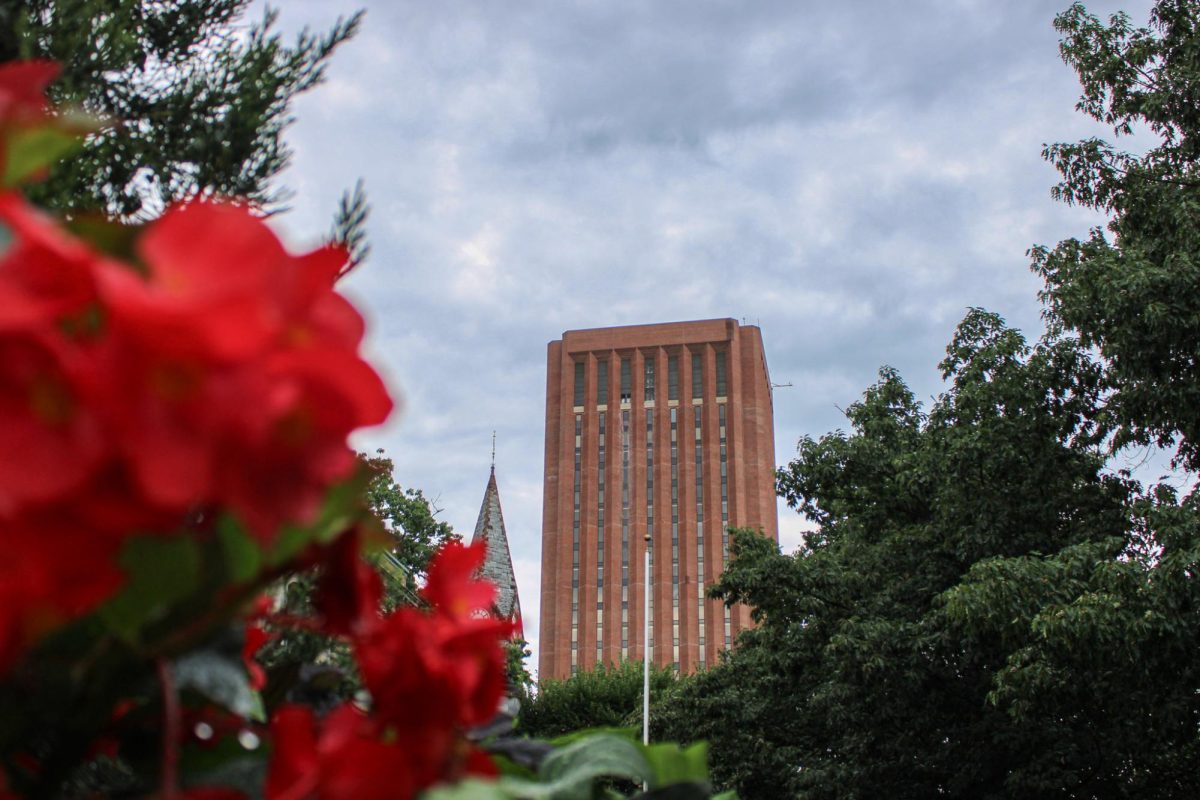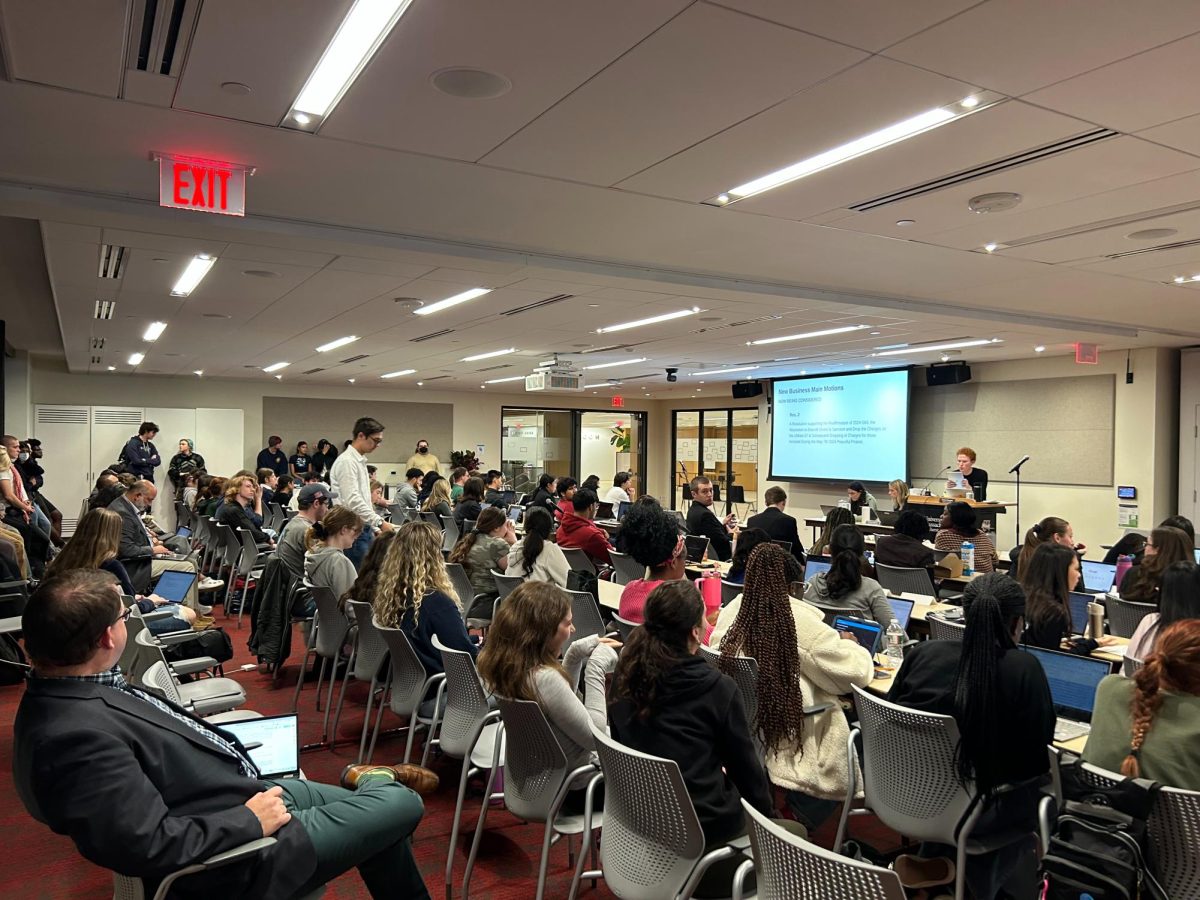University Health Services (UHS) functions as the primary health center for approximately 30,000 people at the University of Massachusetts including students, staff, faculty and local community members. It is also home to 27 different medical departments and 25 general and specialty medicine providers.
Their mission, “is to provide comprehensive medical care to a diverse population of UMass Amherst constituents and promote campus health in the broadest sense.” However, during fall of 2022, in a world still affected by the COVID-19 pandemic, it is proving to be increasingly difficult.
The most popular service at UHS is the walk-in clinic, which exists to address acute medical issues rather than chronic ones. Students have the option of going to UHS directly or signing up to wait in a virtual waiting room to be eventually called down to UHS. UHS Executive Director Andrew McMahon said that this year, UHS is seeing more patients via the walk-in clinic compared to other semesters.
“During the last two years, we were maxing about 120 patients a day at the walk-in clinic, and now we’re hitting over 160 on numerous days this year,” McMahon said. “We’ve reconfigured a lot of our space downstairs to dedicate it to healthcare delivery, and we’ve expanded our walk-in care area seating area by a few hundred square feet.”
Respiratory illnesses are the main issue plaguing patients that come to UHS, according to Dr. George Corey, the medical director of UHS. Corey has been in his position at UHS since 2010 and used to serve as both the executive and medical director before McMahon joined him. He also serves as a general medicine provider at UHS and regularly sees students from the walk-in clinic.
“The acute respiratory illness walking in our door has probably doubled compared to 2019,” Corey said. “RSV (Respiratory Syncytial Virus), strep throats and influenza A is now with us.”
Corey said that the surge in non-COVID virus-based illness is because mask-wearing and avoiding yearly illnesses like colds and the flu has made people’s immune systems not used to the sudden shift back to pre-pandemic living.
“[The viruses] ecological niche is to infect and reinfect the same person every two years,” Corey said. “This is the highest demand year for walk-in care for acutely ill students we’ve ever had.”
One of the most common complaints given by students regarding UHS is the wait times in the walk-in clinic, and issues with the virtual waiting room system. Luca Negris, a junior computer science major, sprained his ankle and joined the virtual waiting room.
He waited for 45 minutes before being told he was at the front of the line. When he went in to be seen by a provider, he was told he had not made it in time and had been put at the back of the line.
“They reset me, which was really frustrating,” Negris said. “They said they put me back at the front of the line with a one-minute wait, and I was there for half an hour, again.”
McMahon says administrators at UHS are aware of issues with the virtual and physical waiting rooms, and they’re working to fix the issue. “We apologize for it, we’re just trying to keep the waiting room safe, as well as best triage the capacity,” he said. “We are very focused on providing a better experience to the patient and access and we hope that our population will see that in the coming months and next semester.”
Another serious issue being raised about UHS is that some students worry providers are not treating their issues accurately or seriously. Ari Schreibman, a senior English and psychology double major, goes to UHS regularly to get allergy shots. Schreibman visited UHS in mid-October due to a sinus infection.
After trying to treat her symptoms at home with rest, water and vitamins, the symptoms kept getting worse. While getting treated at UHS, she felt that she was not taken seriously.
“The problem that I had was with the actual doctor that I saw in the exam room. He was just very abrasive and dismissive,” Schreibman said. “I had been feeling sick for like weeks and he was like, ‘You can’t just come crying in here every time you have a sniffle.’”
Schreibman also said that after telling the provider her symptoms, he dismissed her concerns and told her if she took Vitamin C and drank water, her symptoms would go away. Schreibman was familiar with sinus infection symptoms and she said he refused to give her medicine until she advocated for herself.
“I don’t think he ever officially said I had a sinus infection,” Schreibman said. “He was just like, ‘Fine, I’ll give them to you,’ he ended up giving me antibiotics, and it went away.”
Ayva Holden, a sophomore political science major, had a similarly negative experience with various providers at UHS. Holden has visited UHS five times this semester for the same health issue and has faced difficulty with providers and wait times for each appointment.
“I thought I’ve had strep this semester like three times,” Holden said. The first time she got sick was the first week of the fall 2022 semester. Holden has had strep before, so upon visiting UHS for the first time, she identified her symptoms and the provider tested her for strep but her rapid test came back negative.
“I went home, and they gave me a packet, a little baggie with tea and honey and chicken broth,” Holden said. “And then I didn’t leave my bed for the next three days, because my symptoms just got so much worse.”
She went back a few days later and waited for three and a half hours in the virtual waiting room. At this point, she said she was so sick she could barely swallow her own saliva.
“I literally cried with every interaction that I had with any of the UHS workers because I was so frustrated and so sick and done,” Holden said. “They made me take all these different tests and finally the culture came back positive for my strep, so then they put me on antibiotics.”
In the beginning of October, Holden went back to UHS to get treated for strep a second time and received a second round of antibiotics. This time, she developed a yeast infection, which is a common side effect for women taking antibiotics. The yeast infection went away, but Holden got sick for a third time in early November; her third round of antibiotics gave her another severe yeast infection.
After five separate visits to UHS about the same issue, Holden was told by a provider at UHS that she didn’t have strep, and she had been misdiagnosed and given unnecessary medication from the beginning.
“It was so difficult to even get an appointment with her,” Holden said about the last doctor she saw at UHS. “It’s just really frustrating and really terrible to be sick when you’re in college because you don’t have anybody to take care of you or help you.”
“I’ve been to UHS for the same reason three times and every time, they give me a very temporary solution to a non-temporary problem,” she said. “They’re extremely understaffed and every doctor is on a different page, and you get different medical advice each time.”
UMass Amherst as a whole is facing a labor shortage issue, from Blue Wall in the Campus Center to UMass Transit and the PVTA; UHS is no exception. McMahon said university administration has given UHS the financial support needed to hire more providers, and there are plans to add at least three new providers to the payroll.
When asked about how the extra workload was affecting UHS employees, McMahon said that he wasn’t seeing burnout or mental exhaustion among providers, but Corey said that some providers are struggling with the workload.
“Each is doing differently than the other, and it has been a stress on all of them,” Corey said. “There’s a lot of demand for the walk-in clinic, and frankly, they’re tired. Some of our providers might leave this building at 7 p.m., later, even though the patients are gone by 5 p.m., doing paperwork and catching up with work. It is a tough job for them, the providers, the nurses, and we have had huge delays in replacing our staffing. This is so dependent on staffing.”
Corey also encouraged students who have negative experiences at UHS to reach out to someone at UHS, or even himself, about their experience. “I need to address that concern, and we do address concerns like that,” he said.
“If a person got information that was incorrect or misleading, or they heard an interpretation of their illness from two different people that was slightly or majorly different, that will be the kind of thing I would want to hear about,” Corey said.
Schreibman said after her appointment, she filled out UHS’ post-visit questionnaire with her experience and hasn’t heard anything back from them.
Izzi D’Amico can be reached at [email protected].



















